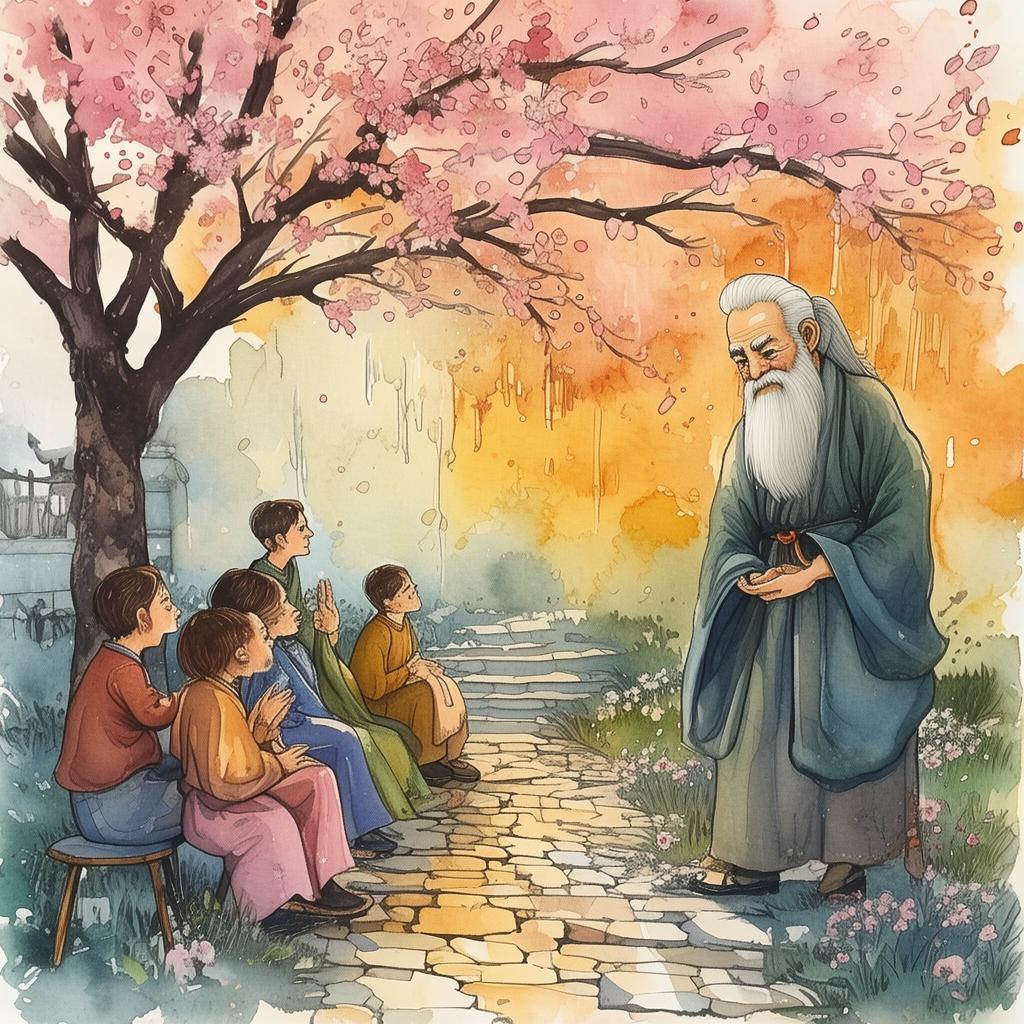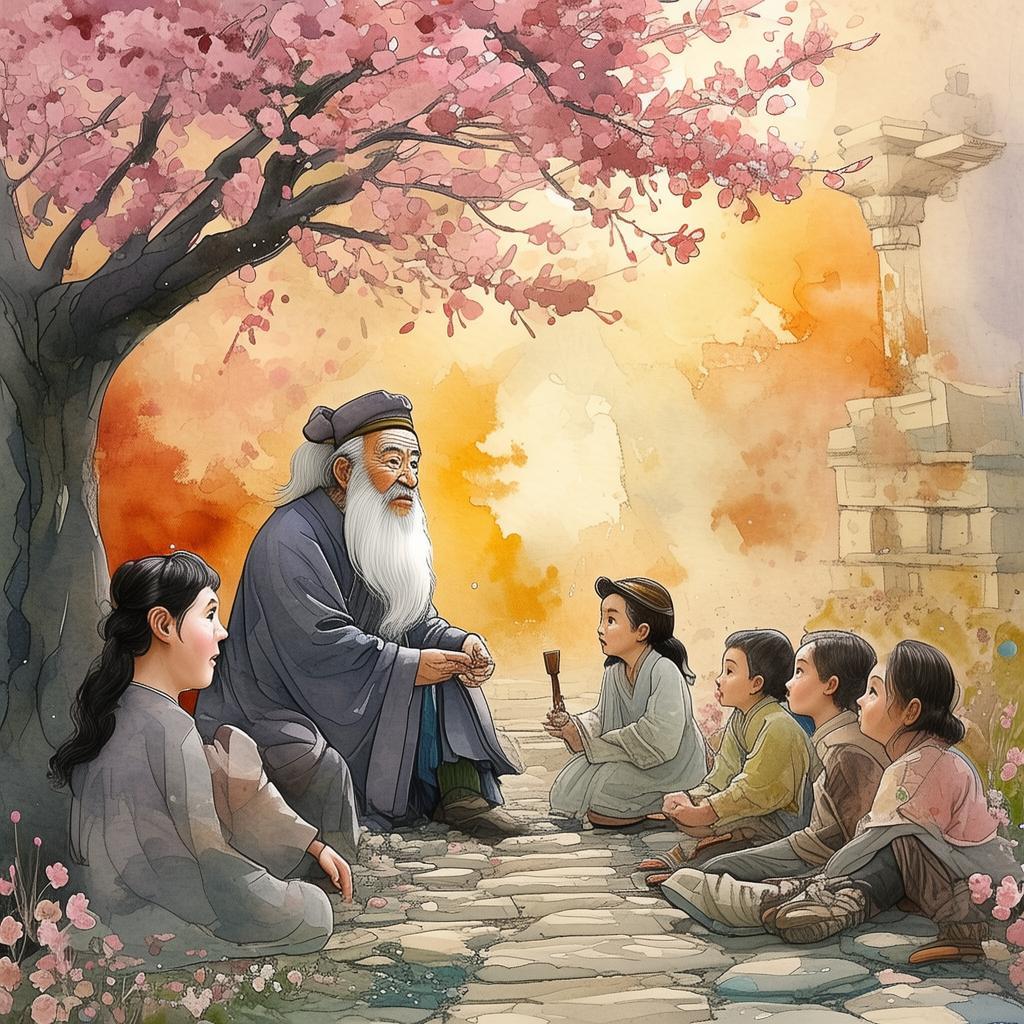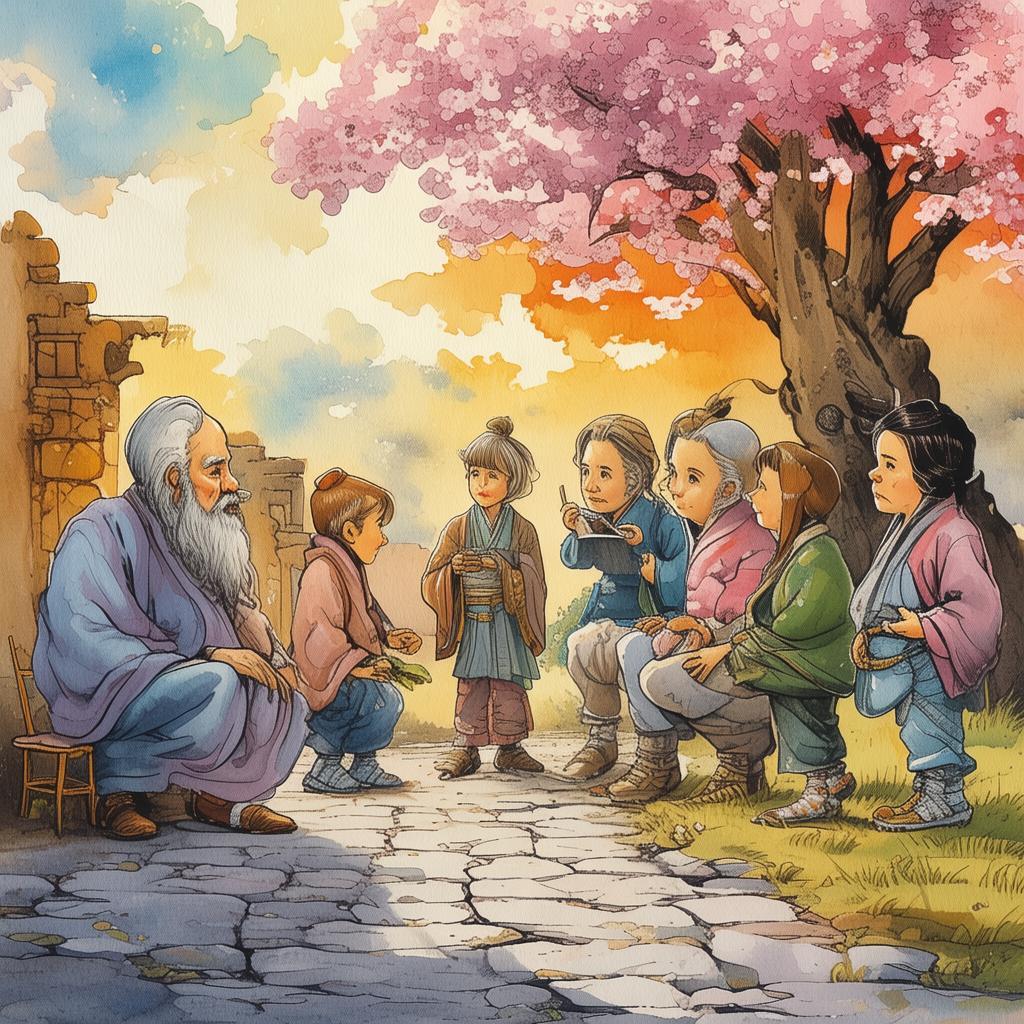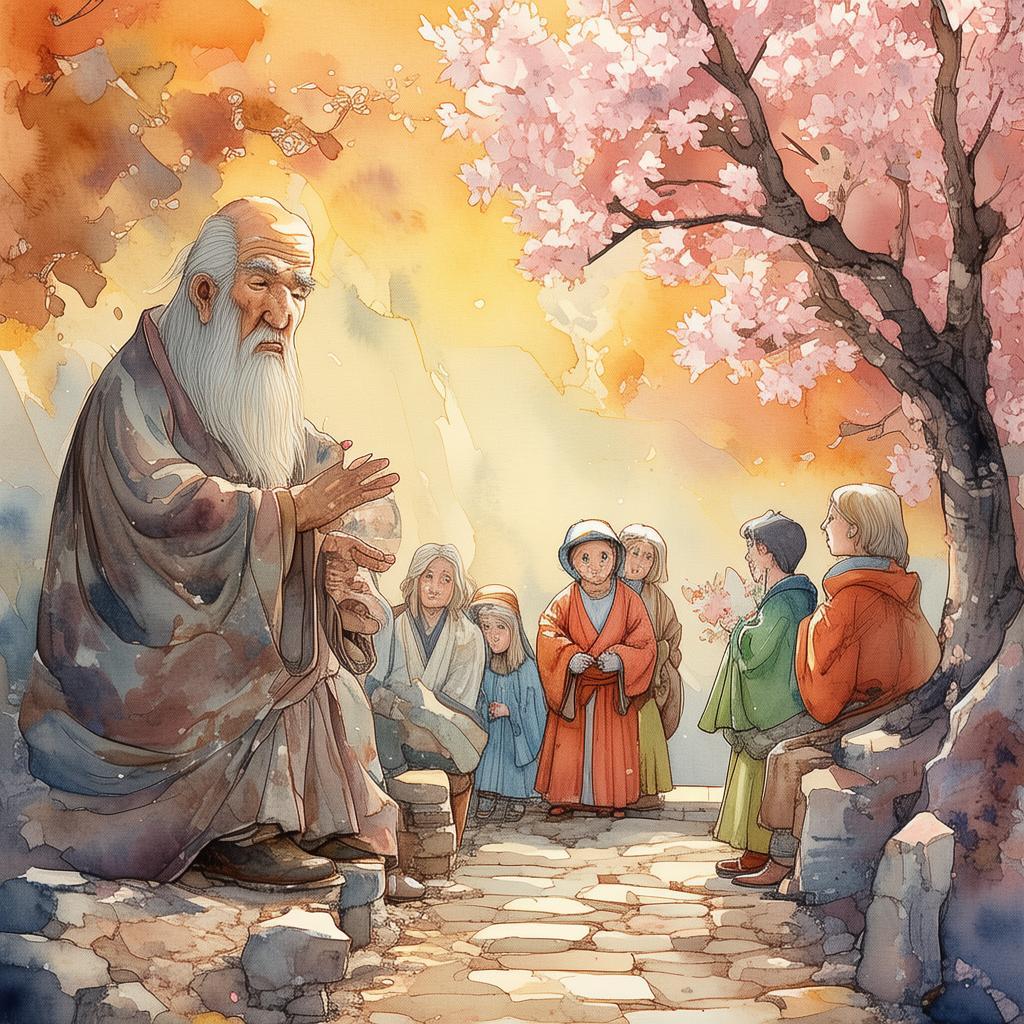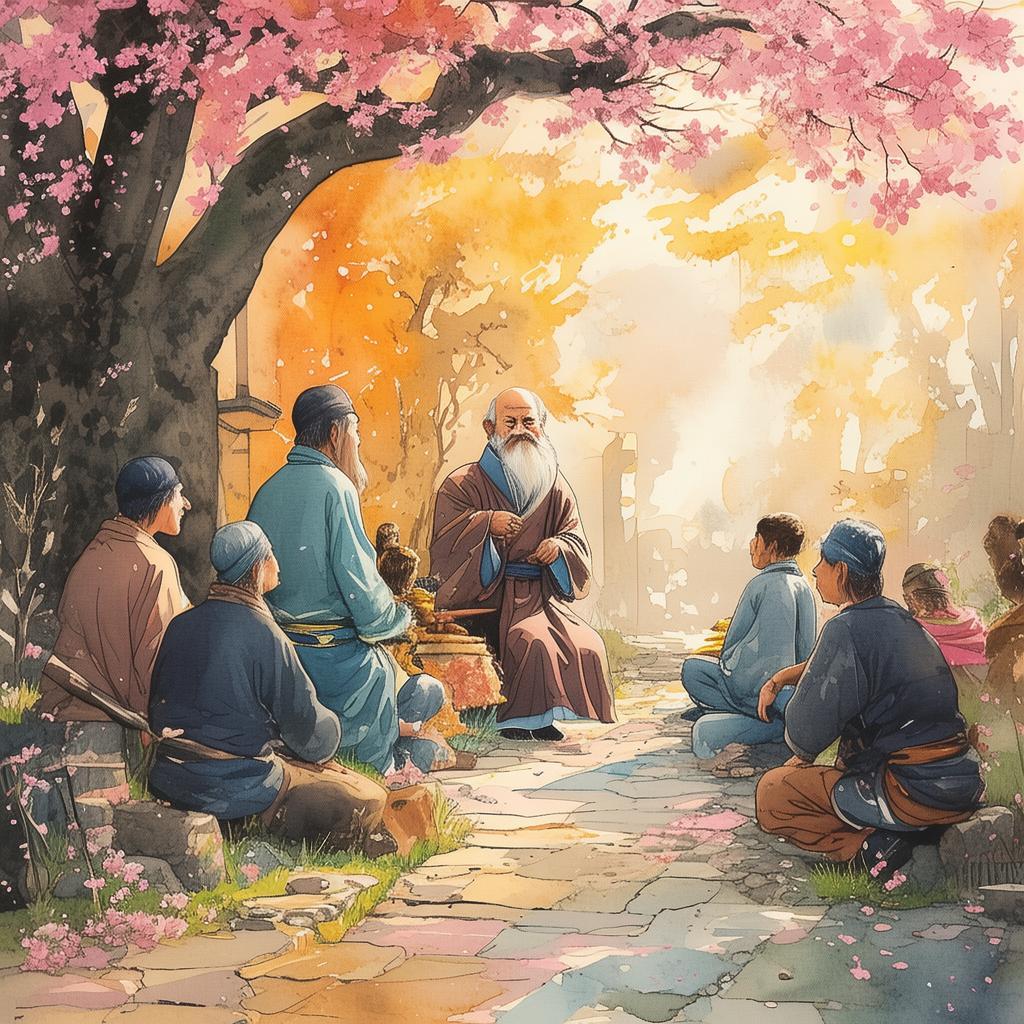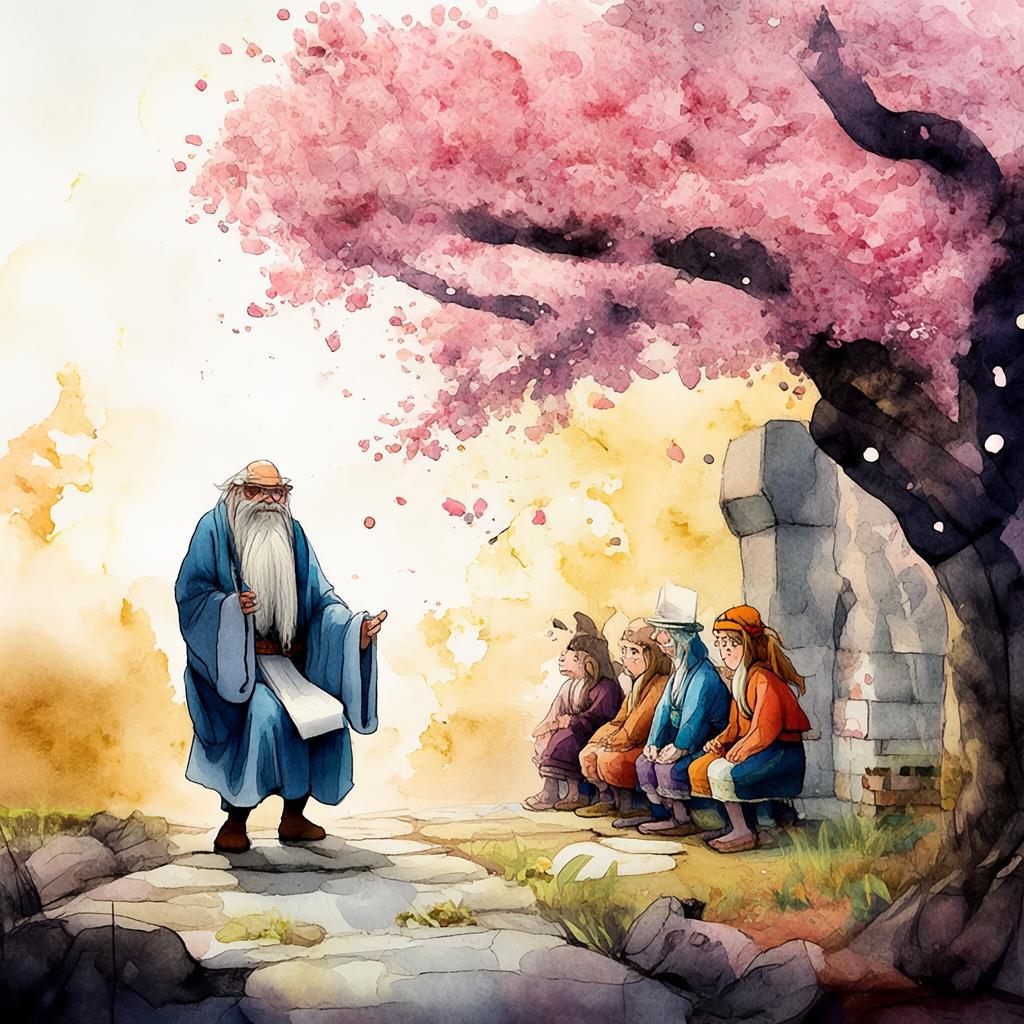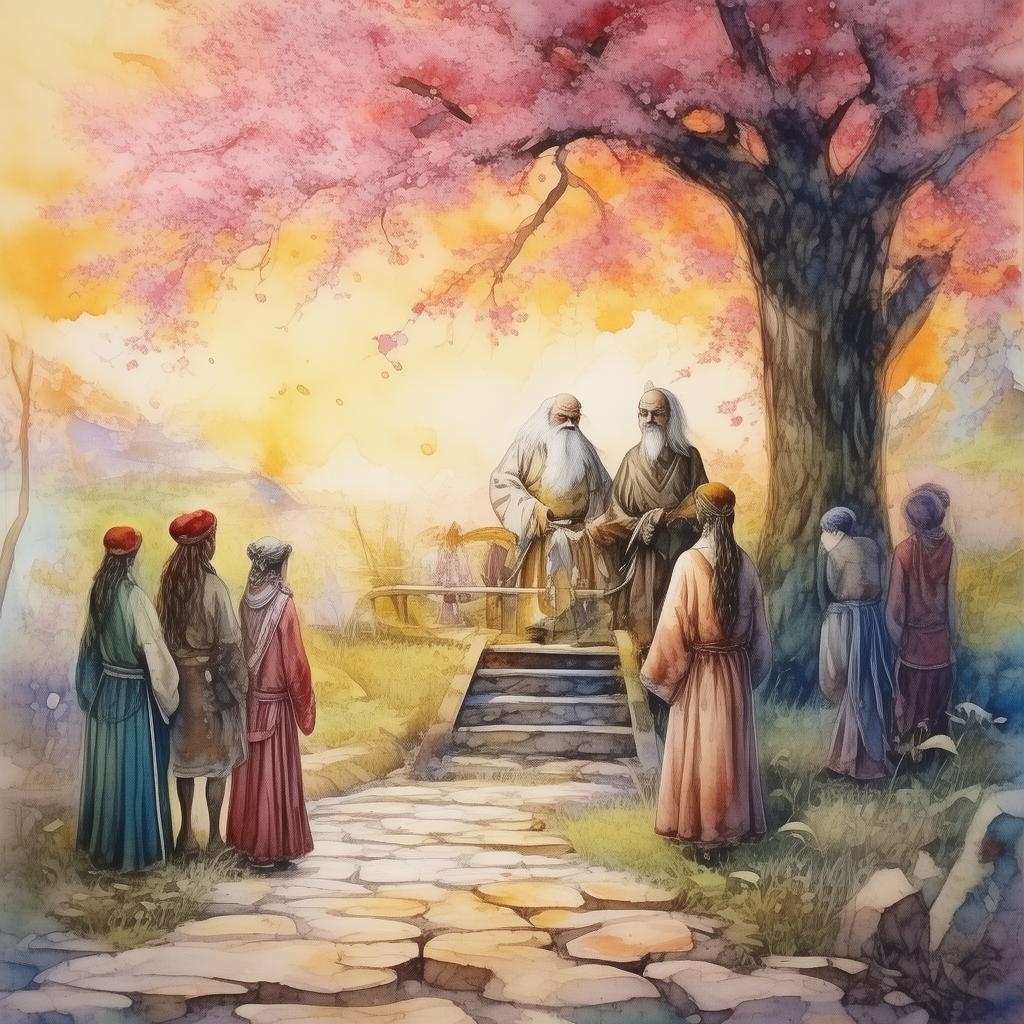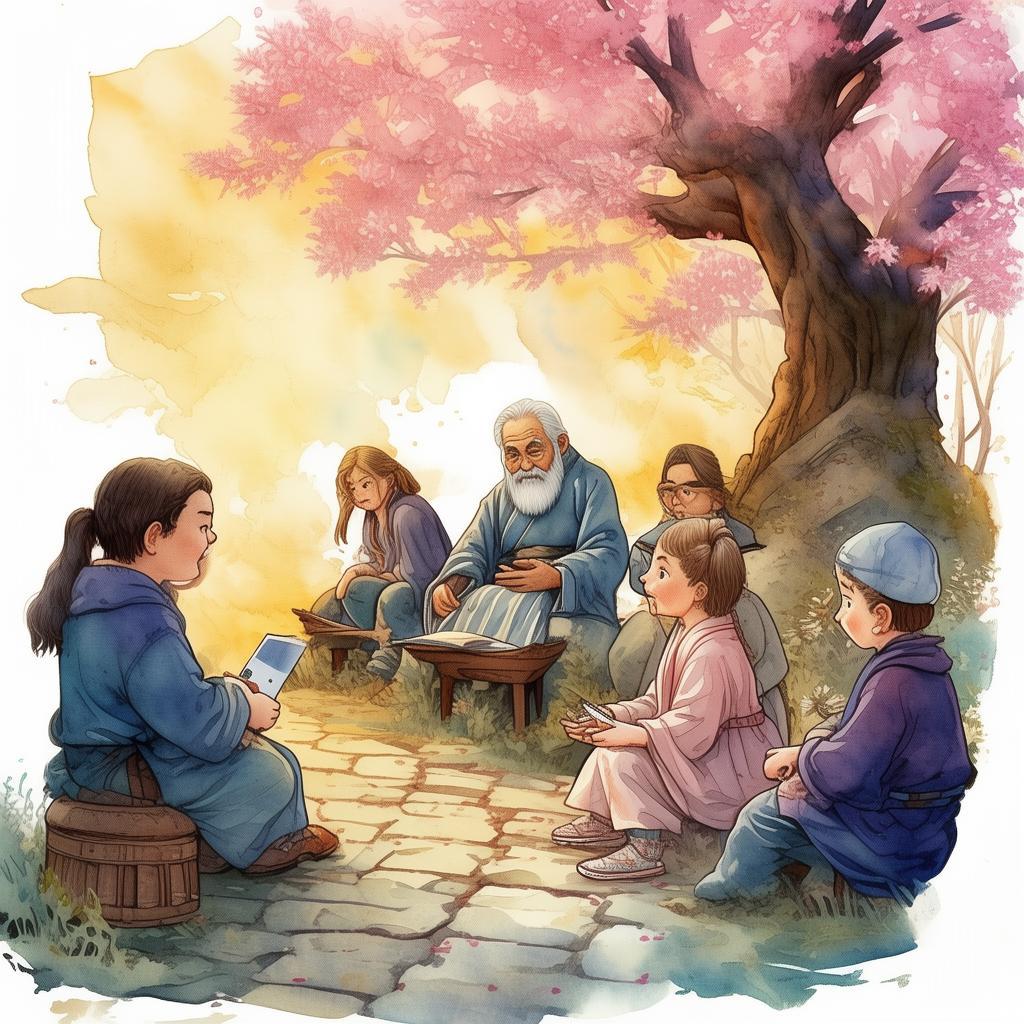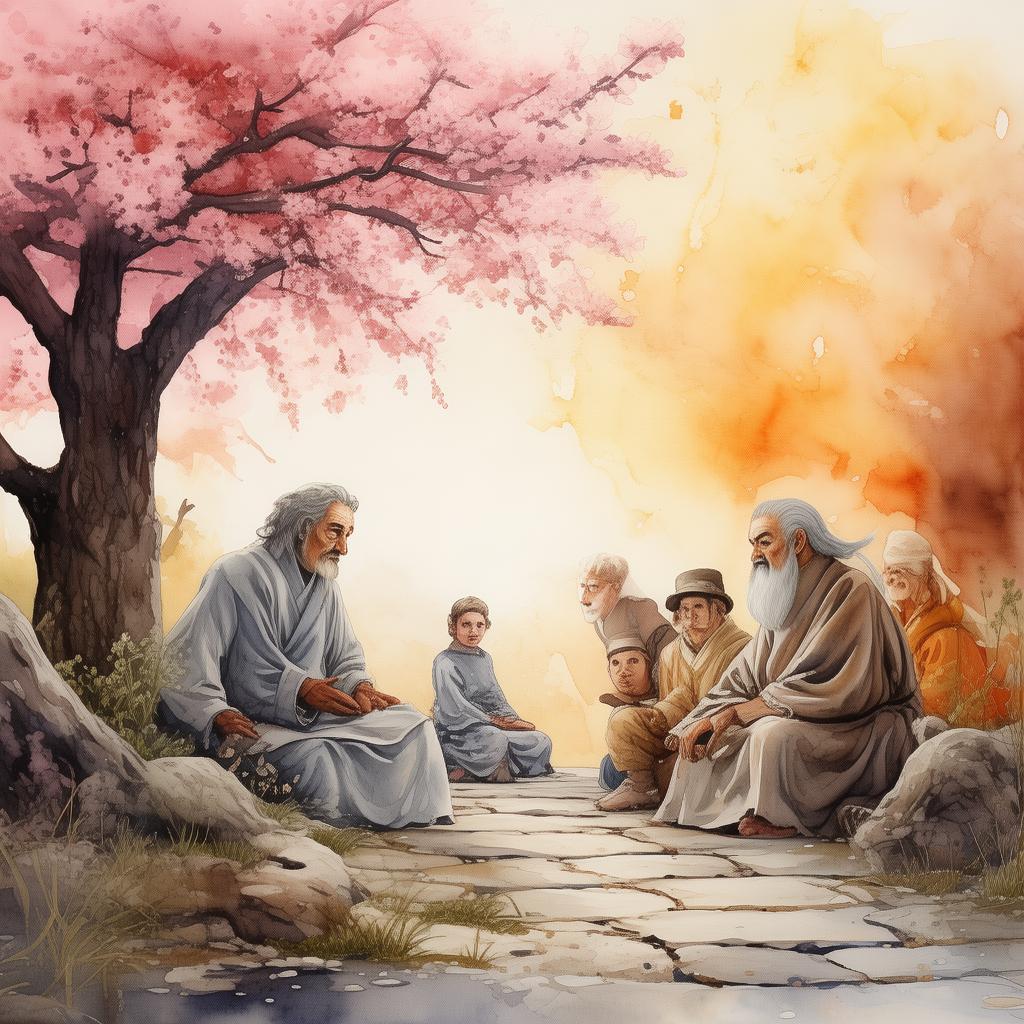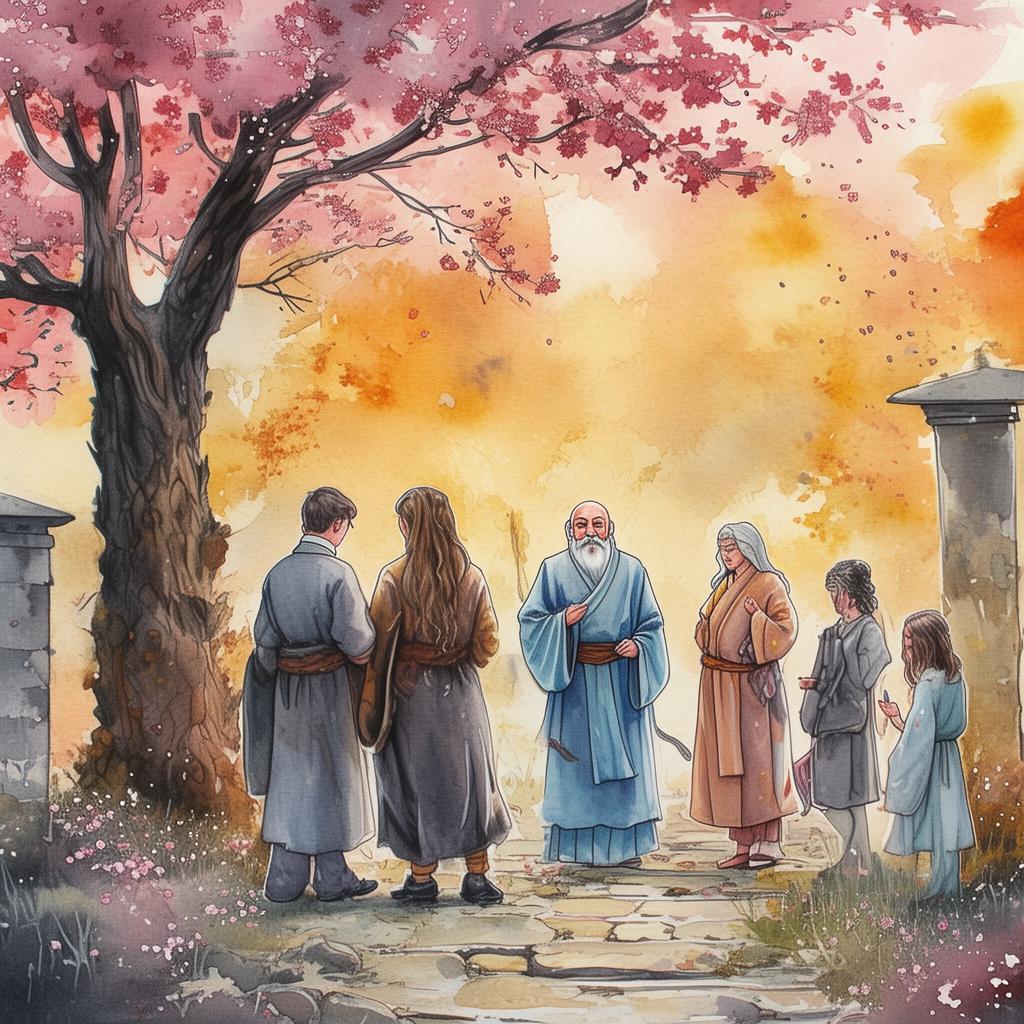Seeds of Paradox: The Garden of Tomorrow's Dilemma
In the heart of the Garden of Tomorrow, where the air was thick with the scent of innovation and the whisper of progress, there stood a solitary figure. He was known as the Sower, a man of quiet demeanor and thoughtful eyes, who tended to the most advanced garden in the world. This garden was not like any other; it was a living laboratory, a testament to human ingenuity and the relentless pursuit of perfection.
The Sower's name was Lin, and he had been chosen for his unique ability to understand the language of seeds. His hands, roughened by years of toil, knew each plant's needs as if they were his own children. In this garden, however, the seeds were not ordinary. They were the result of a groundbreaking genetic engineering project, designed to create the perfect plants, the ones that would feed the world and provide endless sustenance.
Every day, Lin would walk through the rows of these genetically modified plants, their leaves glistening with a sheen of health and vitality. But as he watched them grow, a seed of doubt took root in his mind. The plants were perfect, yes, but at what cost? The Sower began to question the ethics of his work, the very essence of what it meant to create life.
One evening, as the sun dipped below the horizon, casting long shadows across the garden, Lin stood before a particularly vibrant plant. It was a tomato, its fruit a deep, lustrous red, a testament to the technology that had brought it to life. But something was off. The tomato's leaves seemed too perfect, too uniform, as if they had been sculpted by a master's hand rather than nature's.
Lin reached out to touch the plant, his fingers brushing against the cool, smooth leaves. In that moment, he felt a chill run down his spine. He knew he had to do something. The next day, he took a small, unassuming seed from a traditional plant and planted it in a corner of the garden, away from the prying eyes of the scientists.
Days turned into weeks, and the seed grew, slowly at first, then with a vigor that surprised even Lin. The plant was not perfect. Its leaves were irregular, its fruit varied in color and size. But there was a vitality to it, a raw energy that the genetically modified plants lacked.
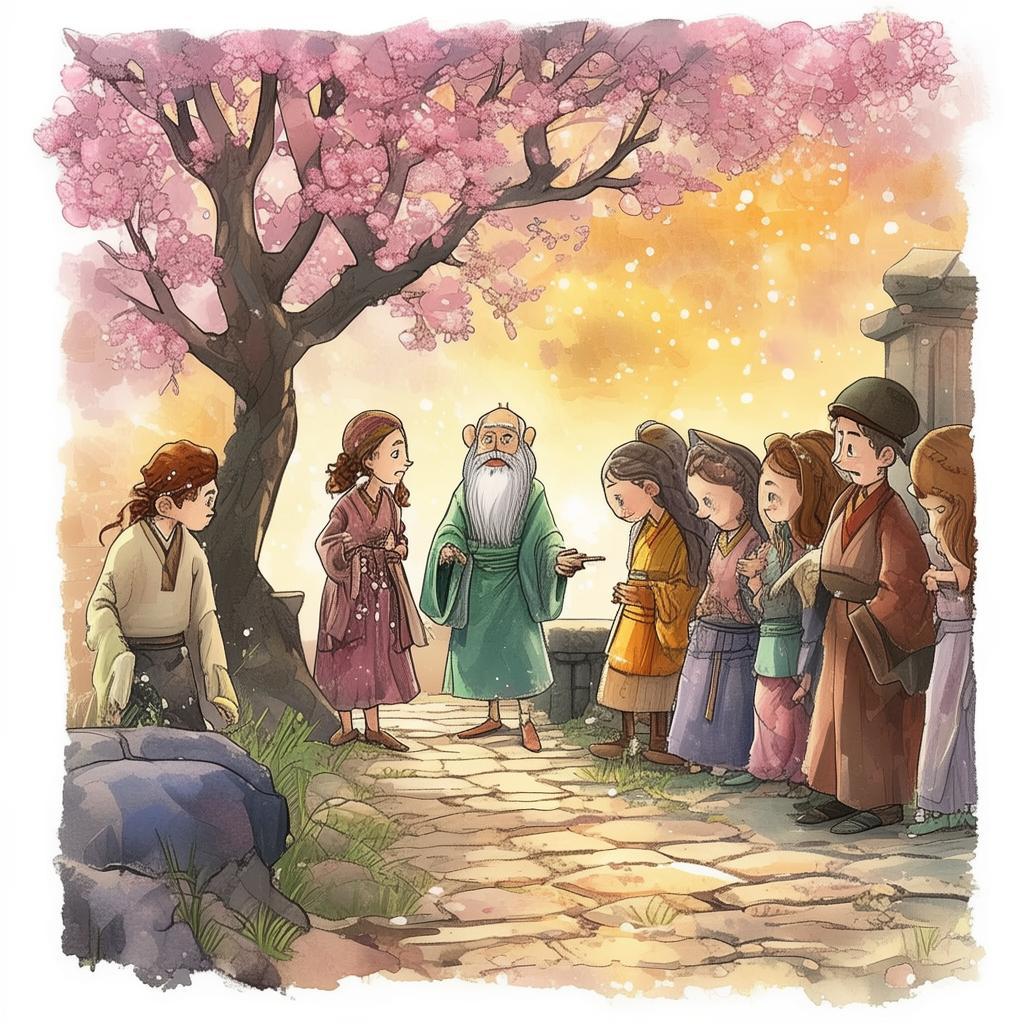
The scientists noticed the new plant and began to scrutinize it, their eyes narrowing with disapproval. "This is not part of the project," one of them said, his voice tinged with disdain. "It must be removed."
Lin stepped forward, his voice steady despite the fear that gripped his heart. "This plant is important," he said. "It represents something the others do not. It represents diversity, resilience, and the beauty of life as it is, not as we want it to be."
The scientists were unmoved. "We cannot allow this to go unchecked," they said. "The integrity of the project is at stake."
Lin knew that he had to make a choice. He could continue to tend to the perfect plants, to be a part of the project that would feed the world, or he could stand up for the plant that represented something greater than mere sustenance. He chose the latter.
That night, as he watched the perfect plants sway in the gentle breeze, he felt a pang of sorrow. But as he gazed upon the imperfect plant, its leaves rustling with life, he knew he had made the right decision.
The next morning, the scientists found the perfect plants wilted and dying, their roots rotting in the soil. The Sower's actions had caused a chain reaction, and the genetically modified plants had failed. The world was thrown into chaos, food shortages and panic spreading like wildfire.
But amidst the turmoil, Lin found solace in the fact that he had stood up for what he believed in. The imperfect plant had thrived, its seeds spreading throughout the garden, proving that life, in all its imperfections, was worth fighting for.
The Garden of Tomorrow had become a lesson in the paradox of progress. It was a reminder that while technology could create wonders, it could also destroy the very essence of life. And in the end, it was humanity's moral compass that would determine the future of the garden, and the world.
The Sower, with his hands now calloused and his heart filled with a newfound sense of purpose, continued to tend to the garden, nurturing both the perfect and the imperfect plants. He had learned that in the garden of life, the seeds of paradox were the very ones that would ensure its survival.
✨ Original Statement ✨
All articles published on this website (including but not limited to text, images, videos, and other content) are original or authorized for reposting and are protected by relevant laws. Without the explicit written permission of this website, no individual or organization may copy, modify, repost, or use the content for commercial purposes.
If you need to quote or cooperate, please contact this site for authorization. We reserve the right to pursue legal responsibility for any unauthorized use.
Hereby declared.
